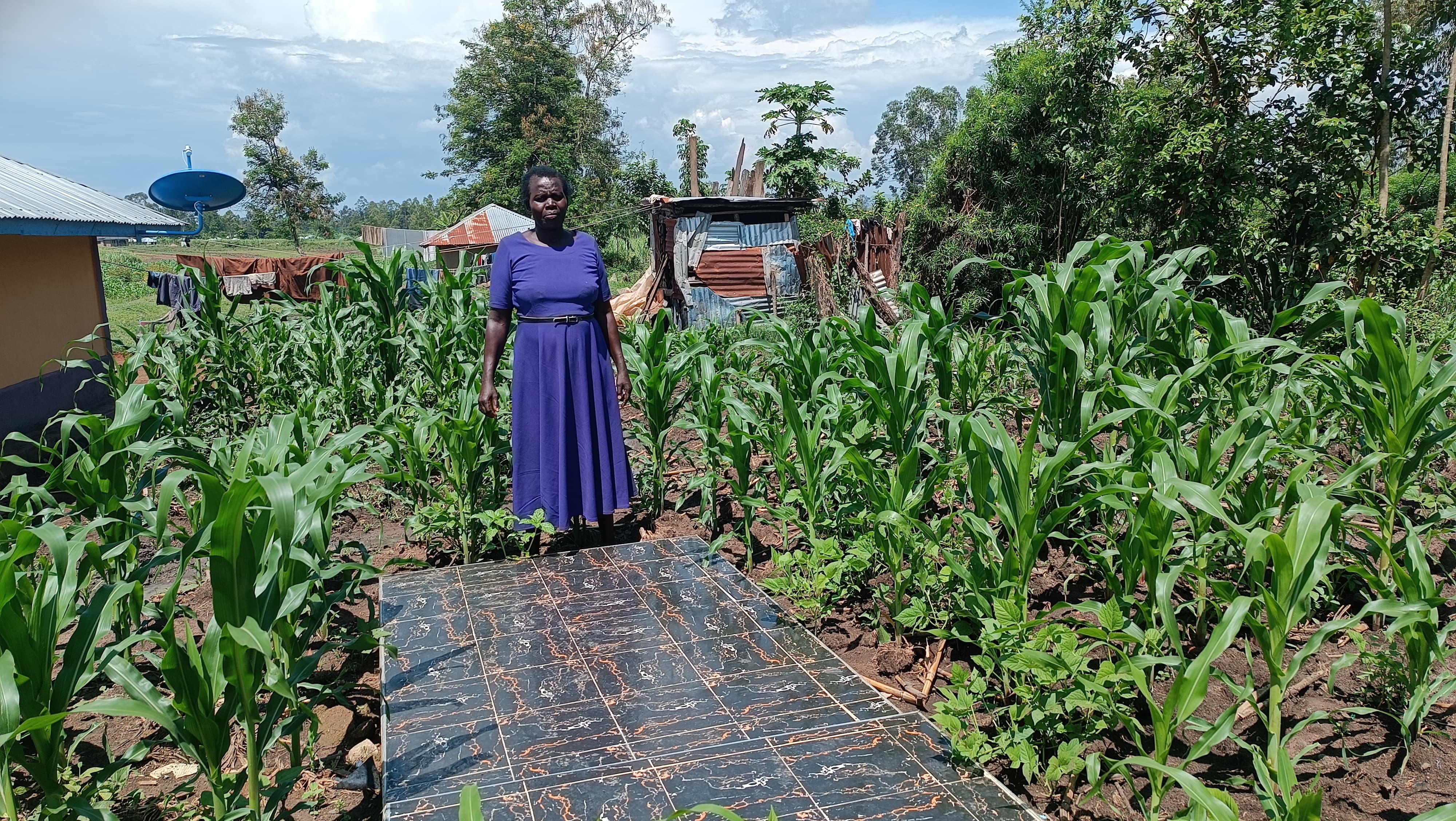- The act of laying her beloved son to rest, in solitude, became the heaviest burden she had ever borne—a sorrowful burden that cast a dark shadow over her very being.
In Kenya today, at least 14,000 children are born with Sickle cell anaemia yearly. Despite being a genetic disorder, other people still consider it witchcraft.
According to research done by AMPATH (Academic Model Providing Access to Healthcare), 9.6% of 1.3 million people in Homa Bay are born with sickle cell.
Jane Akinyi, a 58-year-old and resident of Kabuoch in Ndhiwa Sub County, has lost her ten children to sickle cell. Over the years, she has been renamed a witch for ‘killing’ her children.
Jane's first child died at the age of five. At this time, she did not know about sickle cell disease. She buried the child with the hope of bearing another one.
“At the age of 5, my first child started showing signs of being sick, one day I woke up to swollen stomach and limbs. I visited the nearest clinic for treatment but I unfortunately lost my child,” she said.
After giving birth to her second child, Jane held onto the hope that her baby would flourish in good health. However, destiny had a different path in store for her.
The burden of bearing the weight of countless coffins gradually became woven into Jane's existence, to the point where she faced death within the confines of her own home.
As the tragic losses continued to mount, she found herself unable to keep track of the dates and circumstances surrounding the untimely demise of her remaining children, leaving her bewildered and devoid of a clear understanding of the underlying cause.
“At the age of 4, my second child succumbed, then I buried my third child at 5 years of age, that is when I lost count of the dates I buried my other children,” Jane lamented.
Jane was subjected to the cruel treatment of being cast as an outcast, unjustly accused of practicing witchcraft, and even faced the misguided stigma of being mistakenly labeled as HIV/AIDS positive by her community.
These unfounded allegations not only inflicted deep wounds upon her social standing but also had a profound impact on her marital life. Her husband, burdened by the weight of superstitious beliefs, distanced himself from her, unwilling to be associated with what he perceived as her ill-fated existence.
“My 35 years of marriage was filed with sorrow and burial ceremonies, my husband later got weary of my bad luck and left me to nurse my last child 12 years ago,” Jane said.
Even to this day, Jane carries the vivid memory of the fateful day when her husband abandoned their matrimonial home. The hurtful words he hurled at her during that painful moment continue to reverberate within her heart, leaving deep and lasting wounds.
“My husband referred to me as ill luck and a mother of graves because I had buried all my children without siring any healthy ones. He left me with my last son who I buried last year,” she said.
Jane vividly recalled the joy she had when she gave birth to her tenth child. A glimmer of hope and a better mane were all she saw in her son.
“When I got to hold my last son, I made a prayer to God to grant him long and healthy life. I had a feeling that my last child would give me a better name in this village, that his existence would wipe away the curse I had in my family,” she lamented.
At the age of six, her son fell ill. That is when the pain of a mother struck her, and she vowed to save her son by all means she could. Jane took her child to Homa Bay Teaching and Referral Hospital, where he was diagnosed with sickle cell anaemia.
“On the day he fell sick he had swollen stomach and limbs and his skin turned white which reminded me of my first son. I took him to Homa Bay for checkup and was diagnosed with sickle cell, at that point I did not understand what it was but with the help of the nurses my son started improving, ”Jane said.
Throughout his upbringing, Jane's son Oluoch traversed the corridors of hospitals far more frequently than he did the corridors of schools.
Regrettably, Oluoch became a victim of constant intimidation and stigmatization, enduring a tumultuous journey marked by neglect from his father during his formative years and facing discrimination from his peers.
“My neighbors’ kids used to say they cannot associate with my son because of the fear of contracting HIV/AIDS from the air my son breathe,” she said.
Over the span of 16 years, Jane attentively witnessed her son's transformation into a vibrant and spirited young boy, a sight that never failed to melt her heart. Caring for her son and tending to his needs became a profound purpose that breathed life into her existence.
“When my son passed the age at which I lost my other children, I cried to God because He was answering my prayers, watching my son grow gave me joy and I made sure I never missed my doctor’s appointments,” she said.
Tragically, on the 17th of July 2023, Jane experienced the devastating loss of her son. The weight of grief and anguish that enveloped her was immeasurable, as she found herself shattered by the unbearable pain of burying her sole surviving child.
The act of laying her beloved son to rest, in solitude, became the heaviest burden she had ever borne—a sorrowful burden that cast a dark shadow over her very being.
"My son’s death made my world come to an end because he was the only reason I still wanted to live. I had already prepared for his departure, but it came sooner than we thought,” Jane said.
Torn between the fear of losing her ten children and the knowledge of nursing sick children, Jane later adopted a nine-year-old boy with sickle cell, who has become her reason to still smile amidst her pain.
“I adopted my sister’s son after she passed on and I took him for checkup to confirm his status so that I get to understand how to take care of him, he has become my joy and my reason to smile,” Jane shared.
With sickle cell awareness reaching her village, through her pain and understanding of the disease, Jane has become a pillar in the community, lending a hand to those who once called her bewitched without a second thought.
“Today we have many sick children in the community and most of the mothers always seek help from me for guidance and sometimes for medicine,” she said.
The narrative of the sickle cell being witchcraft is slowly leaving her community with the rise in cases of sickle cell frail children, and people are beginning to understand that it is a genetic trait and has nothing to do with black magic.




-1772102940-md.jpg)


-1772090413-1772095461-md.jpg)


-1772102940-sm.jpg)

